With clear scientific advice and mounting pressure from top retailers and supply chain companies, IOTC members finally agreed an interim rebuilding plan on the third attempt at the 25th Commission session this week. Members of the Global Tuna Alliance acknowledge this first step, however, the rebuilding plan still falls short of scientific advice, meaning the future sustainability of yellowfin tuna will remain at risk if a more robust rebuilding plan is not adopted.
The GTA recognises that progress has been made following an agreement on catch reduction at the 25th session of the IOTC last week. Members of the Commission reached an agreement to reduce the catch of Indian Ocean yellowfin tuna with a view to rebuilding this threatened stock.
Despite the Chair of the Indian Ocean Tuna Commission (IOTC) stating that the issue of overfished yellowfin tuna was a priority on the first day of the annual meeting, it remains disappointing that five states did object to the agreement which puts the rebuilding of yellowfin tuna at risk.
Significant compromise was made by several delegations in order to reach the agreement, but despite these efforts, objections were received from a number of countries who felt the rights of artisanal fishers would be compromised and therefore should be exempt from any reductions or catch caps.
The agreed limit is higher than that sought by the Global Tuna Alliance (GTA) – an independent group of highly-influential retailers and tuna supply chain companies striving for environmentally sustainable tuna – and other stakeholders. For the five members that objected to the newly-agreed rebuilding plan, previous agreements will apply. This is highly concerning as the new rebuilding plan removes exemptions to catch reductions: these countries effectively have no limits to their catch by vessels under 24m in their own waters. This ultimately means the new plan is unlikely to be sufficient to rebuild the stock of this species, which is listed as ‘near threatened’ on the IUCN Red List, despite the best efforts by the majority of IOTC delegates.
Ruth Hoban, Head of Sustainability at New England Seafood (NESI) and partner of the GTA, said:
“NESI is pleased that a stronger rebuilding plan for yellowfin tuna has been adopted by the vast majority of the IOTC Member States last week. We understand the complexities and challenges that make it difficult to reach a decision at these meetings and commend the various delegations for compromising and reaching an agreed decision.
Whilst the plan will certainly deliver a positive step to further rebuild the yellowfin tuna stock, unfortunately the agreed reduction in catch, combined with the exemptions, will likely not follow scientific advice, meaning the future sustainability of the stock is still at risk.”
In the build up to the meeting, the GTA had been mounting pressure on the IOTC to urgently adopt a recovery plan for Indian Ocean yellowfin. Following the data provided by the IOTC’s own Scientific Committee, the GTA called upon members to limit catch to 341,000mt; a figure that data tells us makes it possible to rectify this situation, and rebuild the stock of yellowfin tuna in two generations .
Despite this, after five days of negotiations, IOTC members were only able to reach agreement to limit catch to 400,512mt – 61,000mt above the GTA’s ask. Combined with the exemptions available to the 5 objecting countries, it is unclear whether this reduction will lower the fishing mortality to a level that will rebuild Indian Ocean yellowfin within the necessary period of two generations.
Credit must be given to those delegations who compromised in order to reach agreement. The IOTC member states must listen to the scientific advice to ensure they do not threaten to undermine the effectiveness of this yellowfin rebuilding plan.
The IOTC Scientific Committee will next meet in December and discuss a new stock assessment. Tom Pickerell, Executive Director of the GTA, said:
“Should we see further declines in the health of the yellowfin stock in the new stock assessment we will seek a further Special Session of the IOTC to be held in early 2022 – we cannot afford to fiddle while Rome burns.”
Notes
The Global Tuna Alliance (GTA) is an independent group of retailers and tuna supply chain companies who are committed to achieving more transparent, socially responsible, and environmentally sustainable tuna fisheries. Operating over 10,000 stores in 21 countries across four continents, they use their collective purchasing power to influence the policies set out by the tuna Regional Fisheries Management Organizations (tRFMOs).
Indian Ocean Tuna Commission (IOTC) is an intergovernmental organisation responsible for the management of tuna and tuna-like species in the Indian Ocean. It is one of the five tuna Regional Fisheries Management Organisation (RFMOs).
New England Seafood (NESI) is a major supplier of fresh and frozen premium sustainable fish and seafood in the UK and one of the largest importers of fresh tuna.
